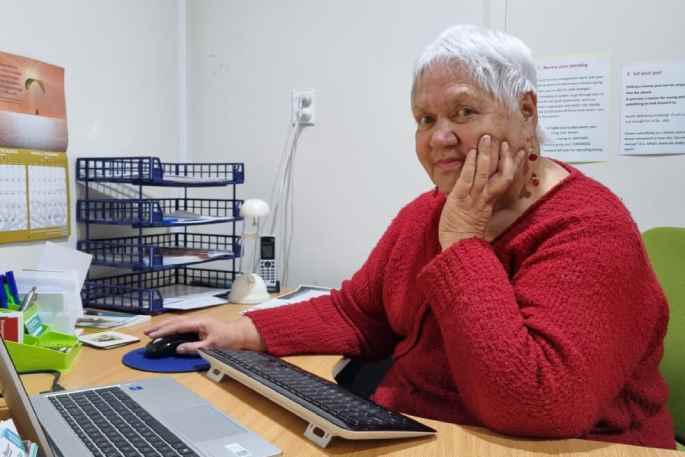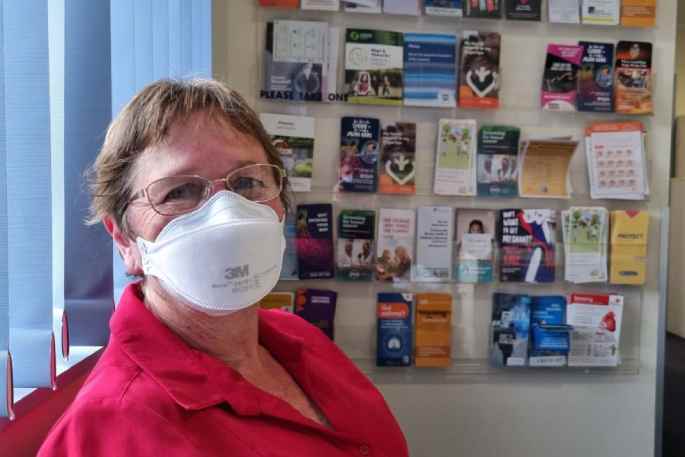A nationwide shortage of doctors means people are facing long waits to secure appointments.
In the Bay of Plenty town of Kawerau, two doctors from an already stretched workforce have recently resigned, increasing the strain on those remaining.
Some locals are losing patience with the delays.
Evelyn Moses says without a swift response from emergency services nine years ago, she wouldn't be here today.
"I just had a headache - just a headache. I went to lie down and didn't wake up.
"All I remembered was saying to my daughter, 'Come and check on me', and I woke up in Waikato Hospital."
Evelyn had been putting off going to see the doctor, pushing concerns about the chronic headaches she had been experiencing to the back of her mind.
When she did attempt to see a doctor, receptionists often warned Evelyn it could be weeks before the next available appointment. That wait time was now nudging a month.
After a subarachnoid haemorrhage, Evelyn now relies on regular doctor's appointments to access the medicine she describes as her lifeline.
"Even though that happened years ago, there is no cure for me, so I rely on going to the doctors, making sure I've got my medication.
"When I can't get those on the weekend, I'm shaky."
.jpg) Evelyn Moses. Photo: Tom Taylor / RNZ
Evelyn Moses. Photo: Tom Taylor / RNZ
Evelyn has become an expert at navigating the health system, and uses her personal experience to help others that came to her for advice at Kawerau's budget advisory service.
She stresses the importance of getting in to see the doctor as early as possible, and making sure prescriptions are filled long before medication ran out to avoid expensive trips out of town - Kawerau has no pharmacies open on the weekend.
However, she says when her clients are faced with such long wait times, it is frustrating enough to make many give up.
"As an individual, we think that we're fit and able, that we're not sick, so the delay is really in us not listening to our bodies and not going to see a doctor.
"If you ring up to say, 'I'm not feeling well', and you can't get an appointment for two weeks, three weeks, then that puts you off."
Secretary of the Kawerau Grey Power Association Lyn Hughes says lengthy delays could make people reluctant to use health services altogether.
"Sometimes it's really very hard - no, not sometimes, always very hard - to get an appointment.
"You might be phoning up and you might need to see somebody, and you'd love to see somebody tomorrow, but they will say, 'Look, our first appointment will be sometime in May'."
 Lyn Hughes. Photo: Tom Taylor / RNZ.
Lyn Hughes. Photo: Tom Taylor / RNZ.
A couple of months ago, Lyn was suffering from a painful swelling on her leg.
Before consulting a real doctor, she consulted 'Doctor Google'. A quick search came back with the suggestion she might have cellulitis and should get to a health professional as soon as possible.
"I thought, 'I've got to go', and so I rang the doctor, and the doctor went, 'Oh, no, no, we won't be able to, but maybe tomorrow we can triage you'.
"I said, 'What are you talking about? I don't even know what you mean'. And she said, 'That means you'll just get to see a nurse tomorrow morning.'
"And I said, 'Oh, no, I can't wait. I think I should go to the hospital'. So, she said, 'Well, that might be a good alternative'. So, I went to the hospital."
Thousands of people, but few doctors
Kawerau has two general practices to serve its 8000 residents.
One of them, Tarawera Medical Centre, had five part-time doctors, but recently two of them resigned in the space of two months.
Practice manager Christine Yeoman says appointment availability depended on the urgency of a patient's condition.
But for non-urgent patients, she says the wait time is currently about four weeks.
"Unfortunately, we don't like doing it, but we do not have an alternative."
Yeoman says nurses could reduce doctors' workloads by triaging patients.
 Tarawera Medical Centre practice manager Christine Yeoman. Photo: Tom Taylor / RNZ.
Tarawera Medical Centre practice manager Christine Yeoman. Photo: Tom Taylor / RNZ.
For urgent patients, the medical centre set aside some appointment slots every day.
"All general practices are short of staff, short of doctors, so it's not as if we can send them somewhere else," says Christine. "We see patients if necessary. Anyone that has to get seen, gets seen."
Christine is currently working through the immigration process for one doctor from England who was scheduled to join the team in October, while also recruiting for another.
She says it had never been this difficult to hire staff.
Yeoman says New Zealand simply needed more doctors to fill the gaps, but that was not going to be a quick fix.
In the meantime, she asks for patience.
"We do feel the frustration as well for our patients. Just have a wee bit of understanding and we will get you in as soon as possible."

.jpg)

0 comments
Leave a Comment
You must be logged in to make a comment.